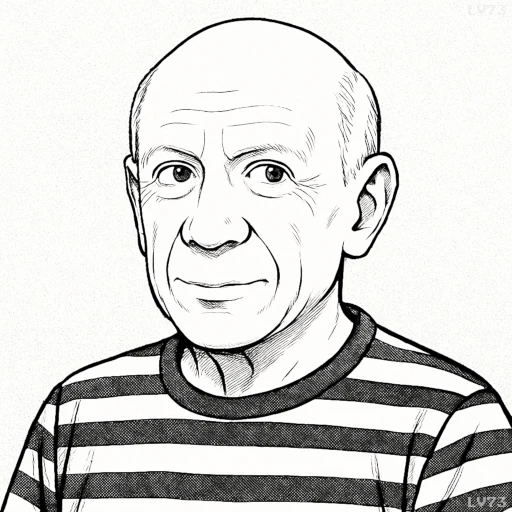“What might be taken for a precocious genius is the genius of childhood. When the child grows up, it disappears without a trace. It may happen that this boy will become a real painter some day, or even a great painter. But then he will have to begin everything again, from zero.”

- October 25, 1881 – April 8, 1973
- Born in Spain
- Painter, sculptor, printmaker
table of contents
Quote
“What might be taken for a precocious genius is the genius of childhood. When the child grows up, it disappears without a trace. It may happen that this boy will become a real painter some day, or even a great painter. But then he will have to begin everything again, from zero.”
Explanation
In this quote, Picasso reflects on the nature of creativity and the transition from childhood innocence to adult mastery. He argues that what many might perceive as the “precocious genius” of a child—an intuitive, untrained, and uninhibited form of creativity—vanishes as the child matures. Picasso suggests that this early genius is tied to a spontaneity and freedom of expression that children have, before the constraints of formal training and societal expectations shape their perceptions and abilities. However, he also acknowledges that this type of unrefined creativity can lead to greatness if cultivated correctly, but with the caveat that in order to truly master the craft, the artist will need to begin again, from a more informed and intentional place, shedding the limitations of early work to develop something more profound.
This idea aligns with Picasso’s own artistic journey. Early on, he was highly skilled and precocious, but as he matured, he moved away from naturalistic depictions to embrace more experimental styles, such as Cubism and Surrealism. Picasso recognized that mastery in art requires more than just a raw, childlike talent—it requires the ability to reinvent oneself continuously, shedding old habits and ideas to grow as an artist. This idea resonates in modern times, where creators, whether in the visual arts, music, or even technology, must often go back to the drawing board, starting over and embracing new ideas in order to break through to the next level of innovation.
A contemporary example of this can be seen in the work of musicians like Prince or David Bowie, who, despite achieving early success, constantly reinvented themselves and their sound throughout their careers. They were willing to take risks, shed past personas, and start fresh in order to stay relevant and innovative. Similarly, filmmakers like Martin Scorsese or Quentin Tarantino have continually pushed their creative boundaries, refusing to settle into a formulaic approach to filmmaking. Picasso’s quote serves as a reminder that true growth in any field requires the ability to constantly begin again, to evolve, and to embrace the unpredictability of the creative process.
Would you like to share your impressions or related stories about this quote in the comments section?


